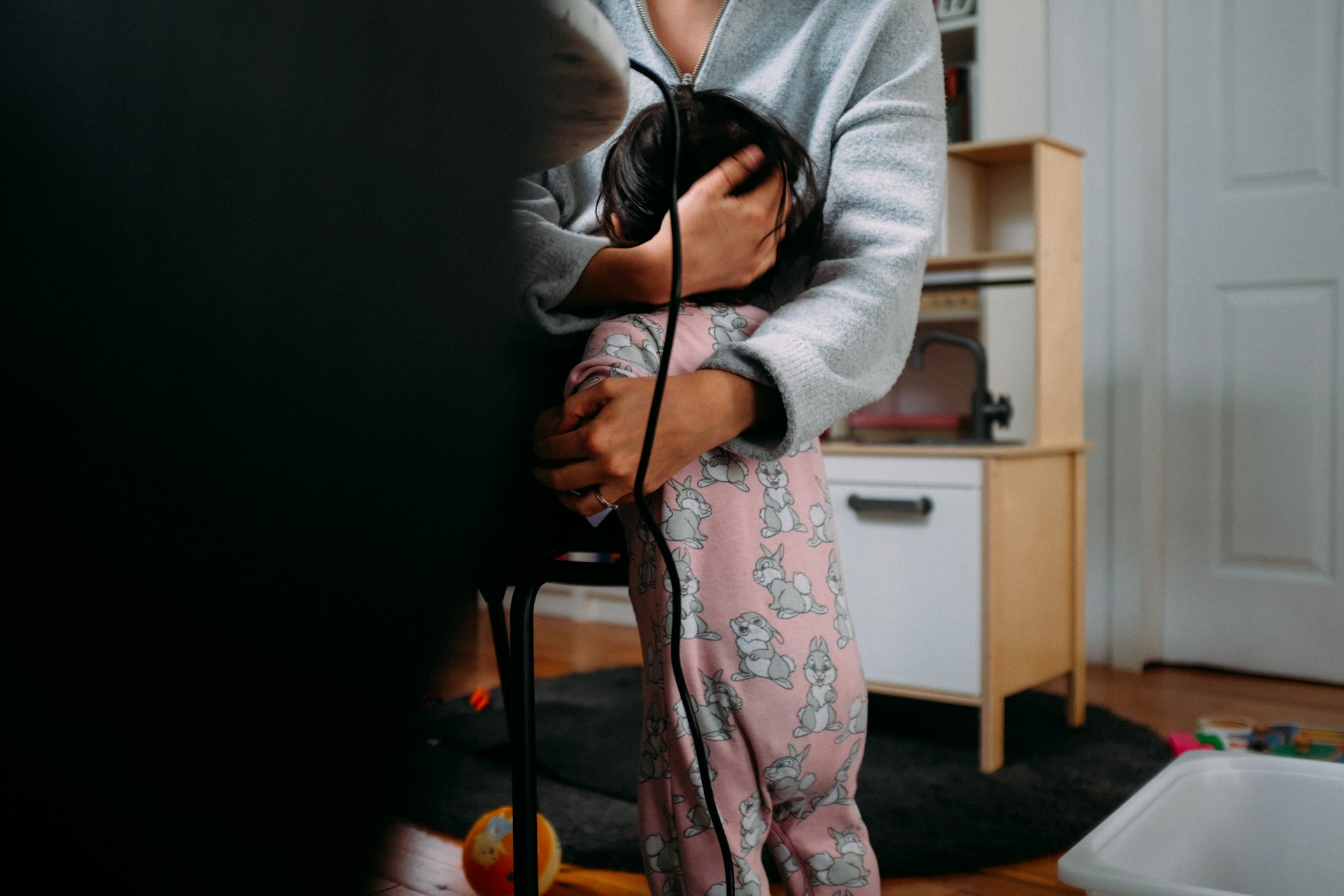Codependency is a dynamic where two people rely heavily on each other for mental, emotional, practical, and spiritual support in an intense and imbalanced way. There is a giver and a taker in the relationship, or a rescuer and a victim.
One needs the other and takes everything they have to offer while the other gives and supports at great cost because they need to be needed. It has been described as “toxic attachment” or “dysfunctional connection” by some mental health experts.
This imbalanced dynamic can feel safe and good at first, because both partakers fall so effortlessly into their role. Both receive what they have been craving on a deep level. However, over time this dynamic ends up affecting everyone involved and can cause lasting emotional trauma.
The good news is that if you are caught up in a codependent dynamic, or have codependent tendencies, you are not stuck. It is possible to recognize the cycle of codependency and break free from it.
Rescuers and Victims
“Codependency” as a term first came into use in the context of substance addiction. In this context, a rescuer comes to the aid of an addict, or victim, and attempts to help them. The addict needs help but doesn’t want to quit their habits, and the rescuer needs to be needed but is afraid of the addict becoming independent and leaving them.
By a process of manipulation and over-involvement in each other’s lives, the rescuer and addict become locked in an unhealthy dynamic where one is still abusing substances and the other has become addicted to being seen as an emotional support.
We now use the term “codependency” mostly in the context of relationships, although the same dynamics are at play. There is generally a person who lowers their boundaries and denies themselves (the rescuer) to support or subtly control someone they see as needing help (a victim). It’s also important to note that codependency does not only affect romantic partners but also platonic friendships, parent-child relationships, and even employers and employees.
The Cycle of Codependency
1. Poor Boundaries and Low Self-Esteem
 We might not think we have anything to offer, but that often doesn’t stop us from trying to be noticed or valued. The confessed “people-pleasers” will often go to great lengths to accommodate other people’s needs, preferences, and desires while ignoring their own.This is harmful in any environment, but not being able to say “no” to someone, whilst giving them everything they ask for is often the start of a codependent relationship. They learn that we are reliable in fulfilling their needs, and their relying on us feels like a boost to our self-worth.
We might not think we have anything to offer, but that often doesn’t stop us from trying to be noticed or valued. The confessed “people-pleasers” will often go to great lengths to accommodate other people’s needs, preferences, and desires while ignoring their own.This is harmful in any environment, but not being able to say “no” to someone, whilst giving them everything they ask for is often the start of a codependent relationship. They learn that we are reliable in fulfilling their needs, and their relying on us feels like a boost to our self-worth.
2. Ignoring Needs and Hyper-Focusing on Others
Sometimes it feels like it is part of the job for us to go above and beyond for someone else. A devoted wife, a dedicated employee, or a dutiful parent might feel like it is simply their duty to focus entirely on their spouse, boss, or child. However, if it results in us ignoring our own needs completely as we fulfill our duties, an unhealthy cycle has started.
3. Fear of Abandonment and Dependency on the Relationship
It can feel wonderful to be useful or needed or to be seen as a consistently generous friend. Unfortunately, sometimes we become dependent on the role we play in other’s lives. This will lead to us performing out of fear of losing that connection. We might not be aware of it, but many times our primary motivation for giving is fear; fear of what should happen if we stopped giving.
4. The Beginning of Rescuing Behavior
We might find ourselves dismissing or downplaying the more difficult aspects of the work we are doing. We might say that our boss isn’t overworking us – it’s simply a busy job. Likewise, we might make excuses for our partner’s behavior if it is problematic, so as not to rock the boat.This means that we have begun enabling problematic behavior, and we do it because we have become dependent on being the rescuer. They have a need, and we can fill that need. Doing so makes us feel good.
5. Repression of Emotional Needs
At this point, we have likely begun building a bomb, though we don’t know it. We have always had needs beyond feeling useful or vital to someone else. We might not know what our needs are, because most rescuers try to ignore their needs. However, resentment builds all the same. We feel like we are being taken for granted and used, even, when we don’t acknowledge it. A person can only ignore their needs so much before the dam of resentment they have repressed bursts its banks and pours out.
6. Crisis
There is often an event in a codependent relationship that brings conflict. We have probably done all we could to avoid this, but we can only take so much. When this happens, both parties tend to bring up all the things they had repressed until now. It often results in a temporary, or sometimes permanent, dissolution of the relationship.
7. Detachment and Reevaluation
As the dust settles and the once close parties are distant from each other, they begin to gain perspective on things. This is where we might evaluate our lives, our motivations, desires, and mistakes. For many, this is the first time they realize just how damaging and toxic the relationship has become. It is natural to feel shame, regret, and anger, but dwelling on these emotions will only lead to more problems. It is at this point where we need to move forward, prioritizing our wellbeing and not looking to others to fulfill our emotional needs.
8. Reconciliation or Restart
We might never get a chance to reconcile with a formerly codependent partner, but if we do, we need to admit our fault and hold the other accountable for their role in the mess. We might be able to establish better boundaries and move forward cautiously. Alternatively, we might fall back into our old, comfortable patterns. Many people default to codependency because it requires less work than having to uphold boundaries and work on themselves.
An Interdependent Future
We were created for relationships. All of us are messy and have baggage. We carry our “stuff” into whatever relationship we’re in because we can’t help it. This means that we will always be drawn to being connected to others, and those connections will almost always be complicated.
However, none of us are stuck where we are, regardless of our age or experiences. We all can take stock of our lives and find a way to become healthier in our relationships. This isn’t easy to do, and we will need help, but we can leave our codependent tendencies behind us. We can build relationships that rely on each other in healthy ways, instead of depending on each other in unhealthy, manipulative, and controlling ways.
 Some people just aren’t good at being independent, and that’s okay. It’s a process. Guys don’t go to the gym and lift the heaviest weight on their first try. We all need practice at the tough stuff and over time our muscles will grow.
Some people just aren’t good at being independent, and that’s okay. It’s a process. Guys don’t go to the gym and lift the heaviest weight on their first try. We all need practice at the tough stuff and over time our muscles will grow.
Reaching Out for Help with Codependency
If you need help dealing with any aspect of codependency, we recommend talking with a counselor. Counseling isn’t a quick-fix option, and it might take many months of sessions with a counselor before you experience a breakthrough. All the same, it is an endeavor worth embarking on and a journey that begins with a single step. Reach out to us today to begin.
“Stressed”, Courtesy of Gabriel Ponton, Unsplash.com, Unsplash+ License; “Rage”, Courtesy of Andrej Lišakov, Unsplash.com, Unsplash+ License
-
Miranda Otsuka: Author
I strive to create a safe, healthy space for my clients to navigate through life’s challenges in the presence of the Lord as much as they feel comfortable doing so. As a counselor, my goal is to serve you well as I am representing the Lord and allowi...
-
Kate Motaung: Curator
Kate Motaung is the Senior Writer, Editor, and Content Manager for a multi-state company. She is the author of several books including Letters to Grief, 101 Prayers for Comfort in Difficult Times, and A Place to Land: A Story of Longing and Belonging...
DISCLAIMER: THIS ARTICLE DOES NOT PROVIDE MEDICAL ADVICE
Articles are intended for informational purposes only and do not constitute medical advice; the content is not intended to be a substitute for professional medical advice, diagnosis, or treatment. All opinions expressed by authors and quoted sources are their own and do not necessarily reflect the opinions of the editors, publishers or editorial boards of Stone Oak Christian Counseling. This website does not recommend or endorse any specific tests, physicians, products, procedures, opinions, or other information that may be mentioned on the Site. Reliance on any information provided by this website is solely at your own risk.







